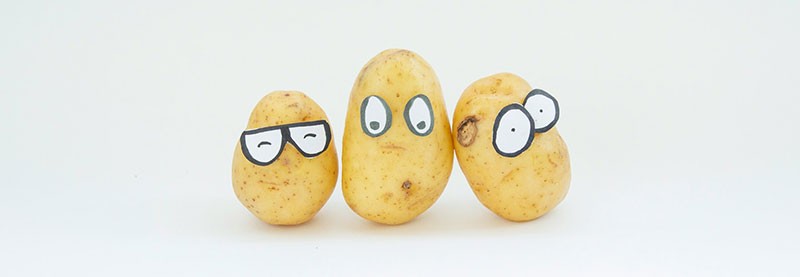Intellectual Property Insights from Fishman Stewart
Mini Article – Volume 24, Issue 5
Share on Social

More than One Way to Slice a Potato?
By Kristyn Webb
The dispute began in 2016 when chip-maker Simplot sued rival chip-maker McCain, alleging that McCain’s spiral-cut “Twisted Potato” design infringed Simplot’s design patent US D640036 for a “Spiral Potato Piece.” A few months later, McCain counter sued alleging that Simplot’s spiral-cut “Sidewinders” infringed McCains’ design patent US D720916 for a “Root Vegetable Product.” McCain also alleged that Simplot’s chips infringed its utility patent US 6821540 for a “Process for Treating Vegetables and Fruit Before Cooking” involving the use of a “pulse electric field” to soften fruits and vegetables before they are cut.
Fast forward several years, and after numerous motions, responses, and replies, to January 2024: the court hearing the case in Idaho (the potato capital of the world), has denied the parties’ cross-motions for summary judgment, and concluded that the case should go to trial.
The ‘540 patent refers to passing an electric current through the fruit or vegetable before cutting and cooking. The parties disagree about whether Simplot’s method of partially heating the potatoes in oil (“parfrying”) falls within the meaning of “cooking” or whether the patent only covers products that are totally cooked and ready to eat.
Regarding the competing design patents, the court concluded that it was best left for a jury to decide whether the parties’ respective design patents and the accused products are similar enough for any findings of infringement. So, after several years of litigation, 120 docket entries, and a 141-page ruling, it appears the case is (finally) headed to trial. We hope the jury will at least get a chance to sample the accused products!
Kristyn Webb is the Group Leader of Fishman Stewart’s Copyright Practice Group, and holds a Master’s Degree in Copyright Law from King’s College London.



Published March 22, 2024
Related Content from Fishman Stewart
People have long pondered whether or not the Giza pyramids were indeed solely burial chambers, which was the only known, and archaeologically determined, use—until now.
By 1930, efforts began in New York to replace Mother's Day with Parent's Day because men were more than just breadwinners. Those efforts didn't catch on, probably because in that era, women often spent more time in the home.
In February, Nike and Skims announced that they will be working together on a new brand, NikeSkims. The co-brand will create a new line of training apparel, footwear, and accessories specifically designed to meet the unique needs of women athletes.
Generally, federal courts have exclusive jurisdiction over copyright cases, and often, this presents an insurmountable paywall for individual artists and small businesses to vindicate their rights, especially where the value of the individual copyrighted works are relatively low.
Dedicated to raising public awareness about the importance of encouraging innovation and creativity throughout the world, the World Intellectual Property Organization (WIPO) annually observes World Intellectual Property Day on April 26 to showcase the role that patents, trademarks, industrial designs, copyrights and trade secrets play in our everyday lives.
Hold onto your foam fingers, sports fans – college sports just got a whole lot more interesting! The latest updates to Name, Image, and Likeness (NIL) rules are making student-athletes bigger than ever, and it’s not just about the game anymore.
Did a federal court in Louisiana recently decide that US copyrights are global rights? It seems so.
One of his most famous songs, “Lose Yourself” was recently at the center of a lawsuit. In 2019, Eminem’s publishing company Eight Mile Style sued Spotify claiming that Spotify streamed a number of its musical compositions without proper licenses.
One of the most common challenges is whether AI should be free to train on data that is protected by copyright and owned by third parties without first obtaining permission.
The U.S. Copyright Office (USCO) recently published its latest report on AI and “copyrightability.” In short, the USCO considers only some AI-generated works to be sufficiently creative as to deserve copyright protection, and thus, registration.
IDENTIFYING, SECURING AND ADVANCING CREATIVITY®












